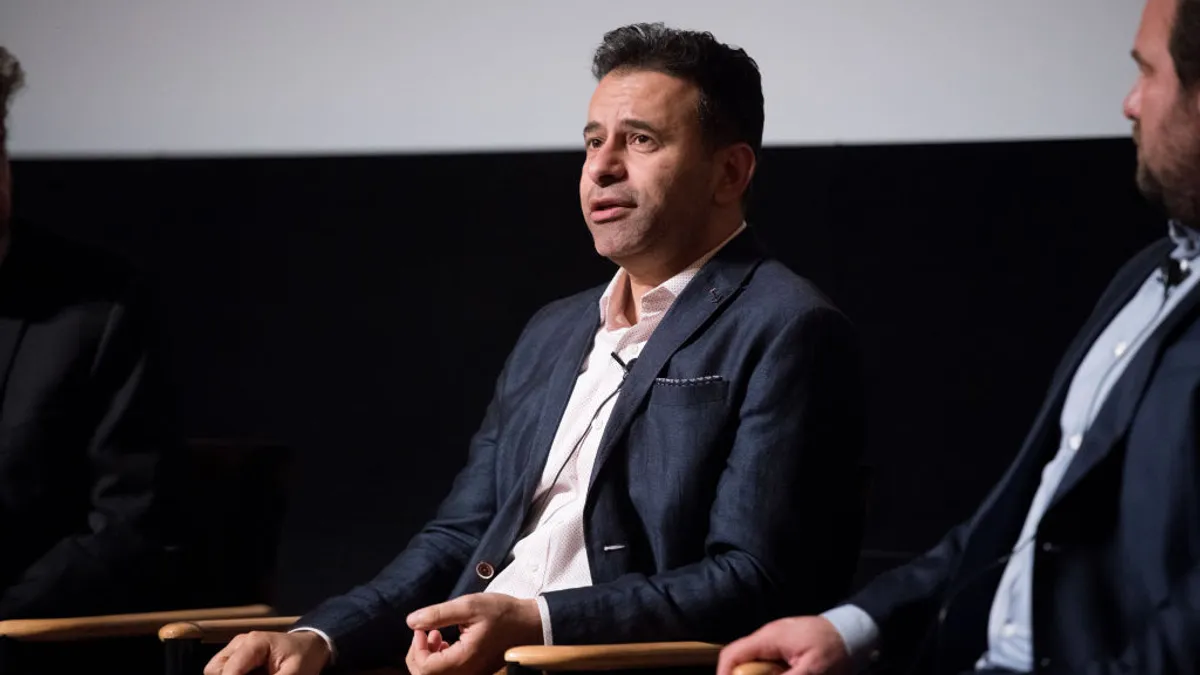By Robin Robinson
With the industry in constant flux, industry leaders say mentoring is key for career advancement. Declining budgets, the emergence of small innovative startups with fewer resources, busy schedules, and an ever-changing work environment are a few of the factors that make mentoring more important to career development than ever before. Mentoring has long been a strategic step for executives who wish to advance their careers by acquiring new skills, learning from others with more experience, and developing a network of associates who can help guide them during challenging times. Just when people need mentoring the most, however, it may be harder to find. Many companies are offering fewer career advancement initiatives due to budget cuts and downsizing, so an employee may need to look outside his or her own organization for a mentor. “The reality is that corporate HR functions are less able to provide traditional mentor programs today," says Philip McCrea, CEO, ClearPoint Learning Systems. “There are fewer structured career advancement opportunities within companies, so forming a one-to-one outside mentorship is a very effective way for potential mentees to fill that void." In today’s job market, it is the mentee’s responsibility to find an appropriate mentor who can help with mastering new skills. “It has become incumbent on an individual to take accountability for his or her own career development," Mr. McCrea says. If an employee wants a mentoring relationship, but is waiting for a tap on the shoulder from senior management, it could be a long wait. Employees need to take the initiative and take advantage of what is available to them for their own professional growth. “It’s a busy world and employees need to take responsibility for themselves and initiate a mentoring relationship that will provide them with the skill sets they need to advance," says William Humphries, president, Stiefel, a GSK company. A 25-year-veteran of the pharmaceutical industry, Mr. Humphries has witnessed a dramatic change in the path to career advancement over the years. He says when he started in the industry, and even earlier, there was a unwavering career road map, but in the past decade, the challenges of accelerated timelines, constantly moving goals, and the need for different skill sets have forced a change in strategies. “The pharma world is changing so quickly that people are looking to draw on information wherever they can, including from their peers," Mr. Humphries says. “In the new world of mentoring, the mentor doesn’t have to be someone who is a senior executive in the organization, but could be someone from any level who has skill sets a mentee needs to learn." For example, Mr. Humphries has a mentor who is also a peer, and who is an expert in public policy, managed markets, and reimbursement. These are skills Mr. Humphries needs to hone because these factors will have a critical impact on Stiefel’s success. For Ryo Kubota, M.D., Ph.D., chairman, president, and CEO of Acucela, mentoring happens with every person he meets. “I don’t choose just one person but instead I use every meeting as an opportunity to learn," he says. “Having a reciprocal relationship with people at all experience levels helps me learn and grow so I can then mentor other people more effectively. I encourage all CEOs to do this because it is not just beneficial for employees but also for them." If a person is fortunate enough to work in a company that offers mentoring programs, he or she should take advantage of the opportunity in any way possible, our experts say. Companies that provide mentoring programs are creating a win-win for both the company and the employee; the company gains a leader who can meet the needs of the organization, and the employee grows incrementally and gains insight and visibility. “I keep hearing companies saying they need more leader-ready people and mentoring is a very important tool to achieve this goal," says Laurie Cooke, CEO, Healthcare Businesswomen’s Association. “It’s been proven time and again that companies that engage in mentoring programs are the most successful." Developing a mentoring program within a company’s own talent pool is one way to cultivate effective leaders, Ms. Cooke says. “A mentee who learns from a senior person within the company will have a larger vision or bigger picture of the company’s goals, and with that new lens mentees can learn how to be resilient and better able to cope amid all the change in the industry today," she says. Mentors within a company program must be engaged and authentic, and realize that their role is to continually grow and develop the key talent within the organization, Mr. Humphries adds. An advantage to in-house mentoring is the opportunity this provides to promote women to leadership roles, Ms. Cooke adds. Quite often the majority of a company’s talent pool is female, but these women are not necessarily converting to senior levels within the company. A mentoring relationship, she adds, would groom these women to be ready when the opportunity or need to be a leader arises. For example, Novartis has programs in place for cultivating its female talent. According to Renee Anderson, global head, diversity and inclusion, Novartis Pharma AG, mentoring is one element that enables female leaders to increase their exposure to senior management and provide support for individual development to help them reach their career goals. “For example, our Executive Female Leadership Program has a mentoring component, which is part of a 12-month program designed to help high-potential female leaders reach the most senior levels," Ms. Anderson says. Committing resources for mentoring programs and other talent development initiatives enhances the company’s culture and creates a strong environment of inclusion. “This is important in our current business environment, as having a strong, inclusive culture enables our affiliates to attract, develop, and retain broader talent pools to help drive the businesses," she says. “At Novartis, our mentoring programs support our focus on creating an environment of inclusion that values each person and offers opportunities to participate in achieving our business goals." At Acucela, a 66-employee biotech company, mentoring is much more informal, but starts at the top with CEO Dr. Kubota, who maintains an open-door policy for mentoring and discussion. “We have an informal method of mentoring, but with all of the different backgrounds of our employees, we must mentor to get everyone ready for the rapidly changing world we work in," Dr. Kubota says. “We employ people from big pharma, academia, and biotech, and we must be mindful of the differences and create an organization that can communicate and align to the same goal. Mentoring fosters that communication." Investing in mentoring employees is critical, Dr. Kubota says, especially when building a company from scratch, like Acucela. “Company leaders need to spend enough time with their people so they can grow in their roles and when this happens efficiencies go up dramatically and we all experience success," he says. Creating the Relationship Whether inside or outside of the company of employment, the first factor in a successful mentoring relationship is trust, all our experts say. According to Dr. Kubota, trust needs to be built on both sides through communication, which includes both sides really listening. “Mentoring requires a mutually respectful, trusting relationship so communication can be genuine and effective," he says. “To make sure communication is working both ways and that messages are being received correctly, there has to be a closed-loop process." Asking good questions and showing a sincere interest in the other party is one way to earn trust. “When a mentor exhibits curiosity and a genuine interest in the individuals being mentored, this will instill a sense of trust," says Angela Bakker Lee, managing principal at ZS Associates. “This can be done by leading the horse to water, so to speak, to spur the mentee’s eureka moment." A good mentoring relationship provides opportunities for two-way learning and knowledge sharing for both the mentee and mentor. At Novartis, the company recognizes the diversity of its affiliates’ talent pools and it seeks to leverage mentoring programs to expose associates to others with backgrounds and experiences that are unique and different from their own. “This allows us to create dynamic relationships among our associates to challenge and support each other, and collaborate to create innovative approaches to enhance both personal careers and our business," Ms. Anderson says. “We currently have a variety of mentoring programs across the Novartis Group within individual affiliates and functions. Each is developed to fit the needs of our talent unique to that area of our business." Like any relationship, a good fit is very important, and both partners need to feel comfortable with each other for the process to be effective. Forcing mentorships by title or department will create situations of potential conflict instead of partnerships. In other words, it’s about chemistry, Ms. Cooke says. “There has to be a connection or a chemistry in order to get to the deep, powerful mentoring relationship," she says. Chemistry is just one of the factors in a successful relationship, Ms. Cooke adds. Another important factor is confidentiality. “What is said within a mentoring relationship, stays in the relationship," she says. “This goes back to trust, and there should be a closed-door confidentiality that is understood by both the mentor and the mentee. When a person shares an innermost weakness, a mentee needs to know the mentor has her back if honest sharing and personal development is to happen." According to Ms. Lee at ZS Associates, mentors need to see opportunities that the mentee might not otherwise have pursued. “The best mentors not only offer ideas and guidance in expected areas, but also create new possibilities for their mentees to explore," she says. And mentees need to be open to these opportunities, even if it is not the initial goal they had in mind. Although mentees must be very clear about their long-term goals, they also need to be open to modifying those goals based on feedback and support in the mentoring process. For example, Mr. McCrea remembers one mentee who wanted to be in sales and marketing, but after getting to know her, he thought that although she was extremely talented, smart, and analytical, she was not best suited for that career choice. “It was my job as her mentor to understand her strengths, and gently encourage her to expand her horizons," he says. “Rather than pursue her initial career path, she accepted an opportunity to work abroad in a London office and has further expanded her skills and experience in global markets." Mentor Tips » Mentoring is not coaching: Although both coaching and mentoring are powerful tools used to retain top talent, motivate employees, and drive performance improvements, they are not the same; mentoring is voluntary, less formal, and occurs more frequently, while coaching is a part of a job requirement related to managing performance and monitoring employees. » Mentoring takes time and requires practice: Too often companies assign employees as a mentor and/or coach without any training or definition of the mentor relationship; many times, those who make good mentors are those who had a good mentor themselves. Source: Angela Bakker Lee, ZS Associates. For more information, visit zsassociates.com. “Successful mentoring leads to a lifelong network and the opportunity to increase one’s effectiveness." William Humphries / Stiefel “Studies prove that companies engaging in mentoring programs are the most successful." Laurie Cooke Healthcare Businesswomen’s Association “A good mentoring relationship provides knowledge-sharing for both the mentee and mentor." Renee Anderson / Novartis “A genuine interest will instill a sense of trust in a mentoring relationship." Angela Bakker Lee / ZS Associates Mentee Tips » Define your goals: Have clear, firm, long-term objectives to provide the foundation for the mentoring discussion. » Be accountable: The commitment and structure of the relationship rests with the mentee. » Be open: Don’t try to impress the mentor by having all the answers, but rather listen and be open to new ideas. » Show respect: Be prompt and be prepared for each meeting and value the mentor’s time. » Choose a mentor based on skill sets, not title: Some people want to be mentored by the biggest title, so they can say, ‘My mentor is X’, but choosing a mentor should be based on skills and learning; mentees who chase titles and money will grow one dimensionally and will miss out on a deeper experience. » Be proactive, curious, and willing to learn: Take every opportunity offered as much as possible; remember, it is not the company’s job to develop the mentee, the mentee must take the initiative. Source: PharmaVOICE “It is tremendously incumbent to take accountability for one’s career development." Philip McCrea / ClearPoint Learning Systems “Mentoring is not only beneficial to the employee, but also to the company." Dr. Ryo Kubota / Acucela HBA CEO Named Mentor of the Year The Healthcare Businesswomen’s Association’s CEO Laurie Cooke, R.Ph., CAE, has been named the Mentor of the Year by the American Society of Association Executives. This award honors an outstanding mentor who has shared his or her time and expertise to guide, teach, support, and encourage mentees on the journey to personal and professional success. The award will be presented Nov. 2, 2011, at the Capital Hilton in Washington, D.C. Ms. Cooke is being honored for her outstanding contributions to hundreds of individuals across multiple companies, industries, and communities. She sets the bar for how training, mentoring, and empowering cross-functional teams should be done to drive growth through collaboration and embracing common goals. In 2009, Ms. Cooke was named to the PharmaVOICE 100 for her leadership and mentoring expertise. Under her leadership as CEO, the HBA has created mentoring programs in 13 of the association’s 15 chapters and affiliates. { For more information, visit hbanet.org. Renee Anderson. Global Head, Diversity and Inclusion, Novartis Pharma?AG, a provider of healthcare solutions that address the evolving needs of patients and societies. For more information, visit novartis.com. Laurie Cooke, R.Ph., CAE. CEO, Healthcare Businesswomen’s Association, the premier catalyst for the leadership development of women in healthcare worldwide. For more information, visit hbanet.org. William Humphries. President, Stiefel, a GSK company committed to advancing dermatology and skin science around the world. For more information, visit stiefel.com. Ryo Kubota, M.D., Ph.D. Chairman, President, and CEO, Acucela Inc., a clinical-stage biotechnology company focused on developing new treatments for blinding eye diseases. For more information, visit acucela.com. Angela Bakker Lee. Managing Principal, ZS Associates, a global management consulting firm specializing in sales and marketing consulting, capability building, and outsourcing. For more information, visit zsassociates.com. Philip McCrea. CEO, ClearPoint Learning Systems, a provider of interactive health education globally. For more information, visit clearpointlearning.com. Mentoring: A professional advantage Laurie Cooke, R.Ph., CAE, CEO, Healthcare Businesswomen’s Association











